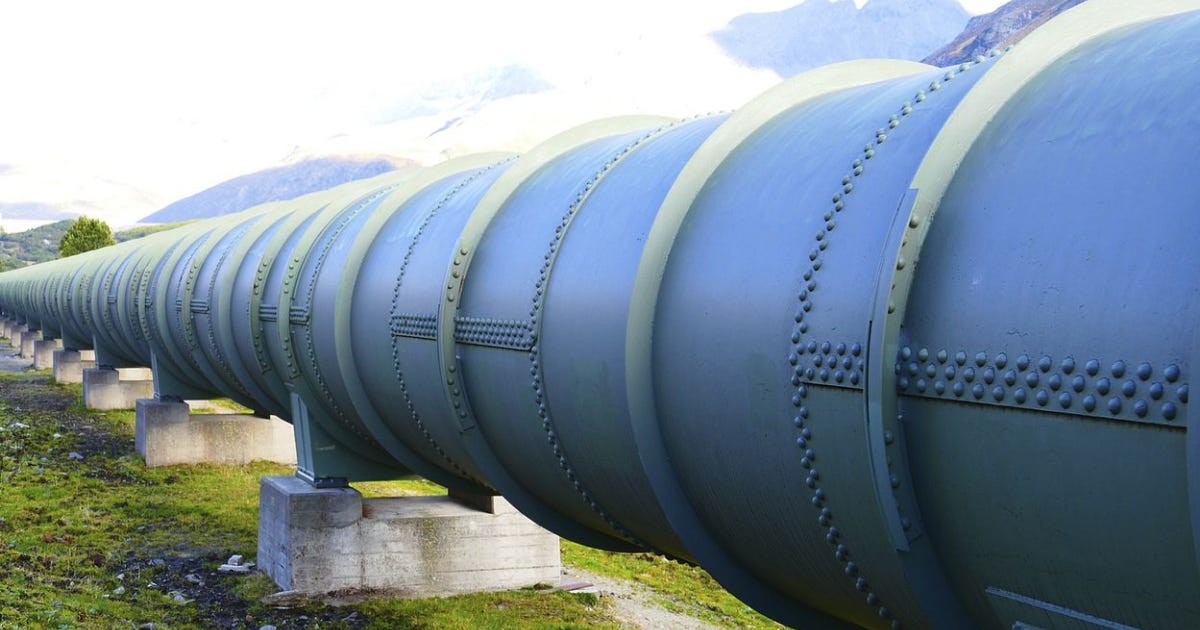Ontario launches East-West pipeline feasibility study with Western support
Ontario has launched a feasibility study of a proposed new pipeline project, aiming to connect Western Canadian oil and gas to its refineries and northern ports.
Ontario has launched a feasibility study of a proposed new pipeline project, aiming to connect Western Canadian oil and gas to its refineries and northern ports. The ambitious plan, backed by Alberta and Saskatchewan, promises to boost Canada’s energy independence and create jobs.
Ontario Premier Doug Ford said in a press release the initiative will “build a more competitive, resilient and self-reliant economy for Ontario and Canada and creating jobs for workers in the face of tariffs from the United States.”
“This nation-building pipeline and energy corridor will unite our country and help unlock new markets for Canada’s energy resources that will reduce our dependence on the United States, all while creating new jobs and opportunities for Canadian workers from coast to coast to coast,” said Ford.
Alberta Premier Danielle Smith said the interprovincial collaboration stands up for the energy sector and ensures Canadians will prosper from its opportunities.
“We’re taking bold action to grow our economy, build real infrastructure and get major projects moving again,” said Smith. “Alberta, Ontario and Saskatchewan are proving what’s possible when provinces lead and stand together to advance a shared vision of responsible development, economic freedom and common sense.”
Alberta’s energy ministry told True North it is excited to see Ontario’s forthcoming study.
“A pipeline connecting Eastern Canada with the most responsibly produced oil in the world from Alberta would create hundreds of thousands of jobs across the country, bring tens of billions of dollars of private investment, increase royalties exponentially and deliver a critical level of energy security that is severely lacking. While Alberta is not funding the study, we are providing technical expertise and support,” said a spokesperson for the ministry.
The study, set for completion next year, will assess corridor routes, costs, and opportunities for complementary projects such as mineral exports, grid upgrades and a strategic petroleum reserve.
Ontario’s Acting Minister of Infrastructure, Todd McCarthy, called the project a “generational opportunity.”
“We are seizing a generational opportunity to bring nation-building infrastructure projects, like the East-West energy corridor, to the forefront of our plan to build Ontario,” said McCarthy. “This transformative project would connect provinces, unlock new export markets and ensure Ontario’s homes and businesses are powered by secure, Canadian-made energy, strengthening our economy for generations to come.”
Saskatchewan Premier Scott Moe said an East-West pipeline would benefit the whole country.
“New pipeline infrastructure will strengthen Canada’s energy security and help us become a global energy superpower,” he said.
The announcement follows months of joint advocacy among the provinces. In July, Alberta, Saskatchewan and Ontario signed a Memorandum of Understanding committing to future collaboration on energy and trade infrastructure after Manitoba Premier Wab Kinew refused to sign, citing the need for Indigenous consensus.
At the Muskoka Summit earlier that month, the three premiers renewed calls for a west-to-east pipeline, with Ford saying, “We can’t chance it any longer. We need to be independent. We need a pipeline going to southwestern Ontario to one of the refineries and be self-reliant.”
Juno News’ exclusive polling previously showed that support for such a project is overwhelming, finding that 98.5 per cent of Canadians support building more pipelines, including 99.16 per cent in Ontario and 98.8 per cent in Alberta.
Despite strong interprovincial support, Ottawa has yet to list any oil pipeline among its so-called “major projects.”
Alberta Premier Smith recently warned Prime Minister Mark Carney that if Ottawa continues to block progress, Alberta will turn southward and sell more oil to the United States—a willing partner—instead.
“If we can’t build cross-border infrastructure and we can’t get our products to market, then we’re violating what it is that the founders came together to build Canada in the first place,” Smith said earlier this month.
The feasibility study marks the next phase in advancing the pipeline initiative, following the Memorandum of Understanding signed by Alberta, Saskatchewan and Ontario in July.





It's Canada...
We are making progress studying the study that was recently studied by the studiers.
When the going gets tough the Politicians and the trained seal bureaucrats who supposedly support them get studying.
Then the study is produced and low and behold DUST HAS A NEW HOME.
Perhaps the only thing in Canada that can still easily find a home.
Oh! A study!! Moving right along!!! Lol